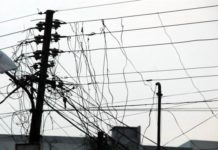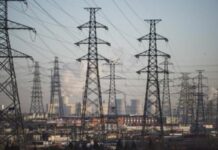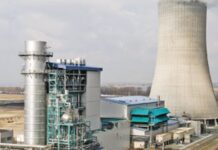ISLAMABAD: The upcoming Cabinet Committee on Energy (CCoE) meeting is likely to approve the Pakistan Oil Refining Policy 2023 as Prime Minister Shehbaz Sharif being In-charge of the Petroleum Division has authorised submission of a summary in this regard to the CCoE.
Sources in the petroleum division on the condition of anonymity also confirmed that the petroleum division has prepared the summary for the new oil refining policy 2023 involving upgradation of the existing refineries.
Also mentioning that the summary was circulated to the finance division, Ministry of Planning, Development and Special Initiative, federal board of revenue (FBR) and Oil and Gas Regulatory Authority (OGRA) for seeking their input.
The finance division has so far not offered their comments on the matter according to informed sources. However, it is expected that the finance division may offer its input in the CCoE meeting.
According to petroleum division insiders this is a positive development for establishing a proposed refinery in the country worth around $10 billion dollars with the cooperation of Saudi Arabia.
Petroleum products contribute 31% to the energy mix of Pakistan with an overall contribution of around 11 Million Tonnes Per Annum (inclusive of 30% local crude processing) while the remaining 69% of the country’s demand has to be met with imports.
Indigenous and imported crude is refined by five local refineries which have been periodically upgraded to meet local fuel specifications.The upgradation of refineries included setting up of Diesel HydroDesulfurization (DHDs) to reduce Sulphur from diesel and isomerization plants for enhancing the production of Motor Spirit (Petrol) at a combined cost of around Rs 75 billion.
The government has been emphasising local refineries to further up-grade their plants by producing Euro-V specification fuels and minimising production of furnace oil, however it requires capital investment of around $4.5 billion.
This would require refineries to arrange funding from either their own resources and or borrowing from lenders at commercial terms. To obtain the required funding, refineries will have to improve their balance sheet, according to sources.
The refineries’ five year profit/loss position indicates that the sector needs fiscal support from the government to improve the financial position for upgradation purposes. In case of no intervention by the government, the local refining industry might be at risk of collapsing according to some speculators.
In such a case the domestic crude oil production of approximately 70,000 barrels per day by the country’s Exploration and Production (E&P) companies would have to be exported and more expensive refined petroleum products would have to be imported.
Such a scenario might discourage investment in exploration of the oil and gas sector, apart from creating vulnerability in the supply chain of strategic fuels and placing additional burden on the country’s balance of payments.
In October 1997, the government introduced the Petroleum Policy 1997 (amended in 2002), which replaced the minimum 10% guaranteed rate of return for refineries with tariff protection formula/deemed duty (10% on high speed diesel, 6% on Kerosene oil, light diesel oil & JP-4). In 2008 tariff protection was reduced to 7.5% on HSD only.
Given the tariff protection could not attract investment in the sector, it is therefore required to be improved. Accordingly, an Energy Sub-Group of the Advisory Committee of the Planning Commission was constituted which made recommendations in April of 2021, with regard to investment in the refinery sector through government support including product pricing policies, tax structure etc.
In view of the above, the Petroleum Division prepared a draft Pakistan Oil Refining Policy for new and existing refineries which was discussed in CCoE meetings. The committee through its decision dated 13th September, 2021, provided guidelines to improve the policy document, therefore, the policy has been revised, said the sources.
Sources in the ministry explained that, the establishment of a new refinery requires considerable lead time and huge investment for which a policy along with attractive incentives needs to be in place. This policy is under process for finalisation and is expected to be placed before the federal cabinet’s economic coordination committee (ECC).
“In case of existing refineries, necessary changes have been incorporated in the policy after deliberation with the refineries and government bodies,” said sources, adding that “accordingly, the draft Pakistan Oil Refining Policy 2023 for upgradation of existing refineries is submitted for the consideration and approval of the ECC whereby certain tax exemption and tariff protection incentives have been proposed as provided at section-6 of the proposed policy.”
Documents available with Profit disclosed that by granting the incentive of tariff protection (equivalent to the incremental custom duty on MS and HSD at the rate of 10% and 25% respectively as approved in Finance Bill 2020-21), the customers price of petrol as well as diesel will be raised by Rs 3 per litre which may be minimised by optimum utilisation of white oil pipeline.


























Need strong reform in policy.
This will require time and huge investment.
Please khuda ka wasta hai aik saal sy rajistration kerwae hai pr abi tak imdad nahi mili same on you my TId.is.10007069686.
Id.3520236538178but koe help nahi muj ghreeb ko Aallah waris humara
nice post